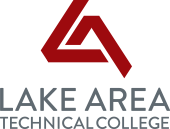
RATE



Professional Fixed-Wing Pilot
Lake Area Tech’s 18-month Professional Fixed-Wing Pilot (PFWP) Associate of Applied Science degree is designed for students interested in a career in the professional pilot industry. The program will prepare individuals to apply technical knowledge and skills to the field of aviation relative to employment as a professional fixed-wing pilot.
Students will be trained in the areas of: aerodynamics, private pilot simulation, private pilot flight training, private pilot ground school, aviation safety, federal air regulations, instrument rating ground/simulation/flight, commercial pilot ground/flight training, instrument instructor ground/flight training, airspace systems, airspace operations, and flight instructor ground/flight training. Professional pilots often own and manage their own business however, other career possibilities include employment in the following areas: aerial survey, aerial photography, corporate aviation, cargo, air ambulance, aerial application, and with airlines.
The Professional Fixed-Wing Pilot program will include a combination of classroom instruction, simulation lab experiences, and flight training. PFWP students will choose between two options: the Certified Flight Instructor option or the Unmanned Aerial Systems Pilot option. The coursework for these concentrations is completed in the students’ second year, second semester. See details regarding each option below. The program utilizes the Watertown Regional Airport and Lake Area Tech training facilities for flight training. The Professional Fixed-Wing Pilot program works closely with an industry advisory board composed of representatives from the aviation industry and potential employers.
How does our program prepare students for a pilot career? We instill the three golden rules of piloting: aviate, navigate, and communicate – in that order.
Pilots learn this concept from the beginning of their training and take it with them for the duration of their career. The uniqueness of Lake Area Tech’s pilot training program is how we teach the first of these three, AVIATE, using simple aircraft with widely-varying flight characteristics that will make our pilots more skilled and ultimately safer, giving you an edge by attracting employers to your resume.
How does this happen? From the very beginning of the first semester students will be immersed in a training experience in aircraft that include simple, high-wing, tailwheel airplanes and motorgliders. These aircraft demand the use of the rudder pedals more than other programs using more conventional aircraft. Equally important, the use of gliders teaches elements of decision-making, aircraft control, and “reading the environment” that provide priceless pilot training experiences. All this happens in the first semester! And then it’s off to the second semester… – NAVIGATE(ing) – COMMUNICATE(ing).
Certified Flight Instructor Option
The Certified Flight Instructor (CFI) option offers graduates the opportunity to gain employment as flight instructors or entry level FAA certified commercial pilots. For those who have a passion for teaching, the LATC CFI option provides a means to fulfill that dream. Flight instructor certification provides an opportunity to build logged flight hour time toward more advanced commercial pilot opportunities (such as the airlines) while getting paid to fly. Certified Flight Instructors are in high demand due to the current need to fill commercial pilot positions across the globe. If teaching is not your thing, our program gets you certified to pursue your passion to fly commercially. Graduates of the LATC Certified Flight Instructor program have the following FAA certifications:
- Single Engine Land Commercial Pilot
- Single Engine Land CFI
- Single Engine Land Certified Flight Instructor Instrument (CFII)
- Multi-Engine Land Commercial
Unmanned Aerial Systems Pilot Option
The Unmanned Aerial Systems Pilot option will prepare graduates to pursue careers operating large unmanned aerial vehicles, commonly referred to as drones, beyond the visual line of sight and in controlled air spaces. The program option has been designated an Unmanned Aircraft Systems-Collegiate Training Initiative program by the Federal Aviation Administration. That distinction means graduates earning a degree with this option will have access to a professional consortium that facilitates sharing best practices in this industry through UAS training tools, resources, and guidelines.
Lake Area Technical College’s curriculum for Professional Fixed-Wing Pilot program options meets the educational requirements for professional licensure in South Dakota and many other states. Professional licensure and certification requirements often vary from state to state. Prospective or current students considering an academic program that leads to a professional license or certification are strongly encouraged to seek guidance from the appropriate licensing agency in the state you plan to work before beginning an affiliated academic program. Read more here regarding Professional Licensure Disclosures.
Uncrewed Aerial Systems (Drones) Certification
There is a fast-growing demand for workers who can operate and maintain uncrewed aircraft systems in our region. The Uncrewed Aerial Systems (Drones) Certificate coursework will equip students with the necessary skills to be employed as uncrewed aerial system operators/pilots and technicians. Graduates will learn the laws and ethical procedures for operating Uncrewed Aerial Systems and will have the knowledge and skills to become a Federal Aviation Administration (FAA) Certificated Remote Pilot (Part 107 Remote Pilot Certificate). Beginning fall 2025, Uncrewed Aerial Systems is an 18-credit, two-semester certificate delivered in a hybrid format with both online and on-campus components.





